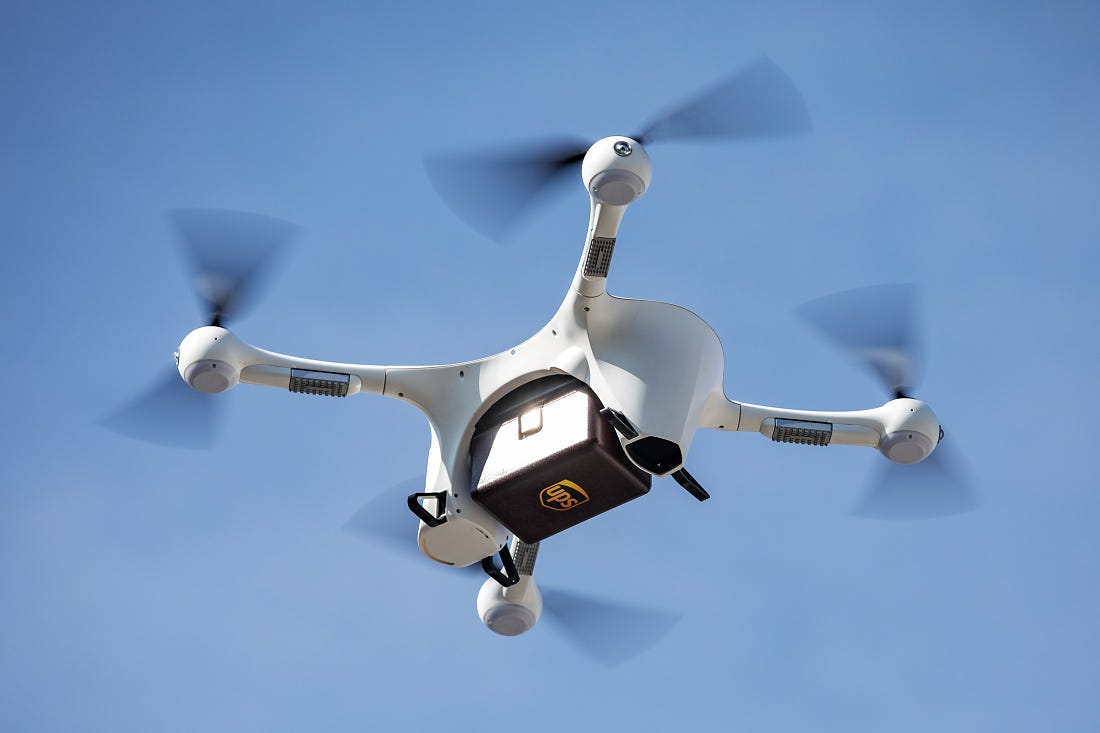Last week I read Bob Iger’s new book, The Ride of a Lifetime: Lessons in Creative Leadership from the CEO of the Walt Disney Company. It’s an excellent book. The chapter titled “If you don’t innovate, you die” details Disney’s decision to respond to a disrupted media landscape by cannibalising their still-profitable businesses in order to start building their new streaming service. This decision hurts short-term profits and is difficult to make but is exactly the right strategy for the long-term and is part of what makes Disney a great company and Bob Iger a great CEO.
“I know why companies fail to innovate,” I said to them at one point. “It’s tradition. Tradition generates so much friction, every step of the way.” I talked about the investment community, which so often punishes established companies for reducing profits under any circumstances, which often leads businesses to play it safe and keep doing what they’ve been doing, rather than spend capital in order to generate long-term growth or adapt to change. “There’s even you,” I said, “a board that doesn’t know how to grant stock because there’s only one way we’ve ever done it.” At every stage, we were swimming upstream. “It’s your choice,” I said. “Do you want to fall prey to the `innovator’s dilemma’ or do you want to fight it?”
When people ask me what companies I’m looking to invest in for the Perpetual Global Innovation Share Fund, Disney serves as a useful example – I’m looking for companies that are either driving change, or they understand and are adapting to change the way Disney is doing right now.
Want to get this update emailed to you each week? Sign up here.
? App Economy
ByteDance, TikTok’s parent company, reportedly generated $7 billion to $8.4 billion in revenue in the first 6 months of 2019. This makes the company smaller than Facebook at $32 billion in 6-month revenue, but significantly bigger than Twitter and Snapchat at $1.6 billion and $700 million respectively. ByteDance also became profitable in June and is expected to be profitable in the second half of the year.
Activision Blizzard has talked about extending its key franchises to mobile for several years and now seems to have a hit with Call of Duty Mobile. The game was launched on Tuesday last week and by Friday it had amassed 35 million downloads across both Android and iOS, along with taking the #1 spot on iOS rankings in more than 100 countries. It’s currently the top grossing game on iOS in the US, according to App Annie.
? Gaming
Untitled Goose Game, a game where you play an annoying goose, became the best-selling title on Nintendo Switch. (Honk! Honk!) The game is developed by Melbourne-based studio House House.
welp as a contrarian, I wanted to hate goose game but I LOVE IT
— christine teigen (@chrissyteigen) September 29, 2019
Sony is doubling down on its cloud game streaming service, PlayStation Now, by cutting the price in half and by committing to add new high-profile games to the platform. Microsoft’s service (Project xCloud) begins its beta this month, while Google’s service (Google Stadia) is set to launch next month.
In game streaming (where you watch people play, not to be confused with cloud game streaming, where you play a cloud-hosted game), Microsoft’s strategy of poaching popular streamer Ninja for ~ $50m to promote its own service (Mixer) over Twitch doesn’t seem to be working – since then Twitch’s lead has grown.
? Biology
The gene-editing technique CRISPR was in the news several times.
Bloomberg had a piece on how the future of genetically modified babies may lie with Moscow as it considers its stance on how to regulate the emerging technology.
With China now strictly regulating human-embryo editing and the U.S. recently extending its ban, Russia has the chance to become the prime mover in an industry with unfathomable upside, the scientist said. He compared the quest to perfect germline editing to the arms and space races of the Cold War, only with more runners.
Fruit flies were modified with CRISPR and given the ability to eat and store poison from the milkweed plant. Researchers looked at the genes of the monarch butterfly, which had evolved the ability to do this, then successfully recreated those mutations in fruit flies which replicated the poison-eating superpower.
Netflix announced a four-part documentary series on gene-editing called Unnatural Selection. The series comes out on October 18, but in the meantime you can see a trailer here.
Researchers at Western University have developed a new way to deliver CRISPR into microorganisms in the lab, providing a way to efficiently launch a targeted attack on specific bacteria.
“Using CRISPR to kill things isn’t a new idea because that’s what CRISPR does naturally,” said David Edgell, PhD, Professor at Schulich Medicine & Dentistry. “The problem has always been how you get CRISPR to where you want it to go. Other delivery systems could only go to a few spots, where ours can go anywhere.”
Japanese researchers say they have developed artificial blood that can be transfused into patients regardless of their blood type. The artificial blood has been tested successfully in 10 rabbits.
Implanting false memories in a bird’s brain causes it to change its tune.
? Chips and Computing
Modern processors are dominated by instruction set architectures (ISAs) built either by Intel, which drives most PCs and servers, or by Arm, which runs most mobile devices. Now there’s a competing open-source ISA gaining traction called RISC-V.
RISC-V was originally written by computer scientists at Berkeley but has gained traction as larger companies like Alibaba have adopted it (Alibaba announced their first RISC-V chip in July). The open source nature of RISC-V means that companies like Alibaba don’t need to pay licensing fees to Intel or Arm, and the technology isn’t subject to potential export controls. RISC-V represents a competitive threat to Arm, and Arm have responded with a more flexible licensing model.
Over the past 3 yrs I have witnessed almost all academic research papers published at the major IEEE conferences transitioning from custom & various Arm cores to RISC-V implementations. While this is great news, it might prove to be a bit too late for Arm. https://t.co/5g055LyPqc
— David Schor (@david_schor) September 16, 2019
Agent-based modelling is a simulation technique first created in the 1970s that simulates the actions and interactions of autonomous agents in order to make a prediction. New Scientist had an interesting article on multi-agent artificial intelligence (or MAAI), which appears to significantly improve the effectiveness of agent-based modelling by allowing the modelling of more realistic agents.
The result is a revolution in agent-based modelling. “We can replicate how real societies work to explore real-world questions,” says Diallo. If this sounds something like The Sims, that’s because it is. But whereas The Sims is a game, virtual societies powered by millions of artificial intelligence-driven agents are deadly serious.
? Finance
Barron’s profiled Taiwan Semiconductor Manufacturing Company (TSMC), the company at the heart of the most demanding leading-edge semiconductors.
WeWork withdrew its S-1 filing as it postpones its IPO.
McKinsey says that the Asianized World Has Arrived, estimating that Asia will account for 50% of world GDP and could account for 40% of global consumption by 2040.
Bloomberg profiles Masatoshi Nagasaki, the world’s first self-styled space trader. Nagasaki is a former steel trader who now acts as a middleman between companies looking for room on rockets and launch operators.
⚙️ Mobility
China is laying tracks for maglev trains that use magnetic levitation to achieved higher speeds. They’ll be ready for trial runs in 2020 and are expected to run at between 600 km/hour and 1,000 km/hour — by comparison Japan’s bullet trains run at a maximum speed of 320 km/hour.
UPS now runs the first official drone airline. Over the past six months, UPS has run more than 1,000 revenue-generating flights moving blood samples and pharmaceutical supplies around a hospital campus.
⚡ Other Snippets
Microsoft has developed an AI that generates believable fake comments on articles.
Facebook was in the news after two hours of audio from internal Q&A sessions were leaked last week.
The US, UK, and Australia have asked Facebook to delay implementing end-to-end encryption across all of its messaging platforms, arguing that it makes law enforcement more difficult. Facebook prefers to favour user security and privacy.
Axon Enterprise released police body cameras that live stream video back to base. They started rolling out in the US a couple weeks ago, and now Victoria Police is testing them (2 minute video).
A paralysed man has walked again with the help of a mind-reading exoskeleton (video here).
A new wearable skin creates the illusion of touch in virtual reality.
Renewable energy has delivered 47% of total generation in Germany so far this year. Wind energy was the greatest contributor to the generation mix with 23%.
The CSIRO in Australia launched its plant-based meat venture, v2food. v2food is a joint venture between CSIRO, CSIRO’s venture arm Main Sequence Ventures, and Competitive Foods Australia (which owns Hungry Jack’s). Hungry Jack’s will be the first major fast food chain to use the meat-free burger patties.
The economics of music streaming is changing how pop songs are written. Artists are paid for each play, which is leading to newer songs being shorter and snappier to maximise the play count and revenue.






